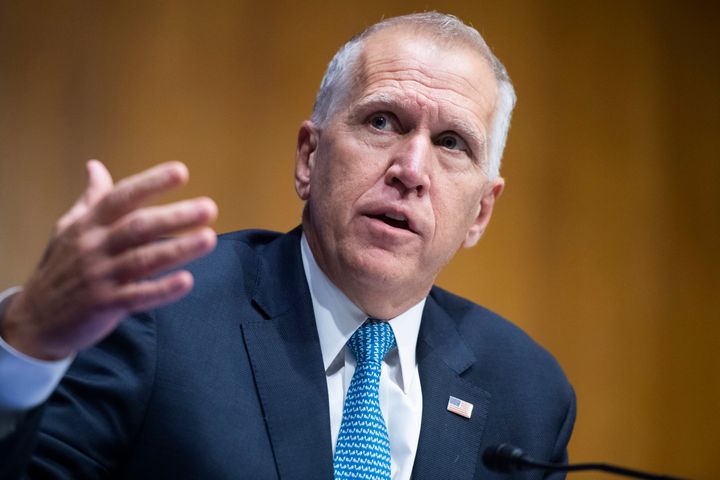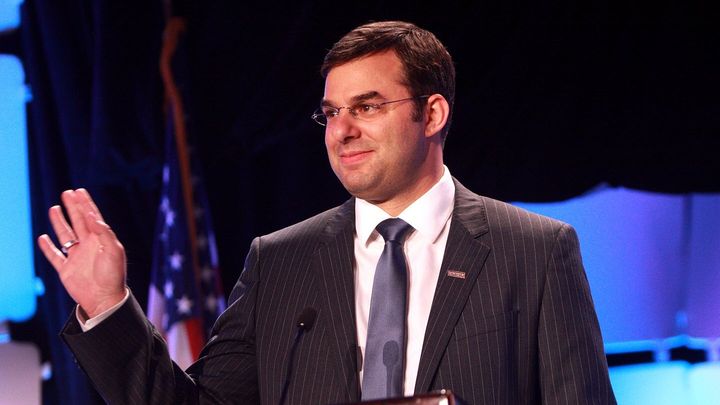In several cases that have received heavy press attention, small business owners who said they needed money from the government to stay afloat during the economic downturn have been busted for falsifying information after being caught using the money to purchase luxury items including multiple Lamborghinis. A Florida man purchased a new Lamborghini Huracán EVO, worth $314,000, using taxpayer funding that was supposed to be used to keep his employees paid, while a man in Texas opted to use his bailout funds on Lamborghini’s Urus model, an SUV, as well as a new Ford F-350.
But those obscene instances of grifting are just a sliver of the waste, fraud, and abuse that investigators say has plagued the Paycheck Protection Program (PPP) since it was passed by Congress in March by the Coronavirus Aid, Relief, and Economic Security (CARES) Act. The Select Subcommittee on the Coronavirus, a committee created by Speaker Nancy Pelosi (D-Calif.) to conduct oversight of the Trump administration’s pandemic response, reviewed data on the millions of PPP loans that were given out and found tens of thousands of loans that appear to be suspect, as well as evidence that the administration has not put in place basic measures to prevent people from abusing the system.
“The Trump administration failed to design and implement a program that would help actual small businesses and their workers, said Kyle Herrig, president of Accountable.US. “Instead, they cut corners and kept the American people in the dark. In the end, the wealthy and well-connected were showered with our tax dollars and fraudsters took advantage of the troubling lack of transparency.”
The PPP offered businesses with fewer than 500 employees, including self-employed individuals, access to forgivable loans worth the average amount of monthly total payroll times 2.5. The loans are eligible to be forgiven once recipients confirm that the money was used for payroll cost and other business costs like utilities payments. The program was funded with $669 billion appropriated by Congress.
Among the issues discovered by the Select Subcommittee on the Coronavirus, according to a recent report from its Democratic members, is more than $1 billion that appears to have been given to businesses that received multiple PPP loans. Guidance from the Small Business Association (SBA) “individual business entities cannot apply for more than one loan,” yet the committee found more than ten thousand cases in which the borrower received multiple loans.
The PPP money was only supposed to be available for companies that had been in operation prior to February 15, 2020, but the committee found 121 recipients whose businesses were formed after that date.
Loans worth hundreds of millions of dollars were found to have been distributed to former government contractors that should not have been eligible under SBA guidance because they had previously been barred from doing businesses with the government due to fraud, contract violations, or performance issues. These loans include 613 to companies that have been disbarred from working for the government and 353 that went to companies that have been flagged by the government for performance and integrity issues, according to the committee’s analysis.
The committee’s analysis led researchers to suspect that the SBA did not use publicly available databases to discover possible fraud or to check if companies that applied for PPP loans were eligible for the money. The System for Award Management (SAM) database contains details on every entity that has done business with the federal government going back to the 1990s. The committee found hundreds of loans that went to companies that reported key information on their loan applications that does not match information on their SAM registration.
The committee highlighted one example in their findings that suggests a case of corporate identity fraud that could have been avoided if the SBA referred to SAM data.
“In one concerning example, seven businesses in widely varied industries all provided the same seemingly nonexistent address in Ohio on their PPP loan applications,” the committee explains. “A Google Maps search approximates this address as the back of a fast-casual restaurant. According to SAM, each of these varied businesses has an address registered in a different distant location—most of them out of state.”
The next phase in PPP will be the loan forgiveness process. PPP borrowers can fill out SBA’s 5-page form 3508, which requires them to certify financial details applicable to the program. Lenders will review the forgiveness applications and submit them to SBA, which can take action against businesses and shareholders for repayment if it determines an applicant is not eligible for forgiveness.
In its report, the committee urges the administration to “implement fraud detection protocols to review loan forgiveness applications, including the use of existing federal and commercial databases.”
Shortly after passing the CARES Act on March 27, some Democratic House members including Katie Porter of California warned that hundreds of billions were likely to go to wealthy corporations without strong oversight measures in place. The bipartisan Congressional Oversight Commission, which can hold hearings but does not have subpoena power, has not had a chairperson since its formation in April, with only four of its five member seats filled. Pelosi announced the creation of the House Select Committee on the Coronavirus on April 2, which does have subpoena power and is chaired by Majority Whip James Clyburn (D-S.C.), but its preliminary analysis released on Sept. 1 comes after hundreds of thousands of small businesses, many owned by people of color, have permanently shuttered. A survey from the organizations Color of Change and UnidosUS found that only 12% of Black and Hispanic business owners received the funding they had requested.
In July, the SBA released information on PPP recipients to the public and it was discovered that multiple businesses affiliated with members of Congress had received funds, including several who had voted against the TRUTH Act, a bill to require these details to be made public. As documented by the Center for Responsibility and Ethics in Washington (CREW), members of Congress who benefitted from PPP loans and voted against PPP transparency include Reps. Rick Allen (R-Ga.), Vicky Hartzler (R-Mo.), Kevin Hern (R-Okla.), Mike Kelly (R-Pa.), Markwayne Mullin (R-Okla.), and Roger Williams (Texas). Sludge additionally found that Rep. Justin Amash (I-Mich.), who publicly opposed the CARES Act and the PPP program in particular, is part owner in a company that received PPP funding. Amash also voted against the TRUTH Act.
Read more from Sludge:
Here Are the Billionaires Funding Trump’s Voter Suppression Lawsuits
Oregon Voters To Decide on Limitless Corporate Political Donations
New Bill Seeks to Bring Lobbying Out of the Shadows
Congressional Leaders Are Raising More Dark Money Than Ever Through Their Super PACs
New Ohio Speaker Has His Own Ethics Issues Involving FirstEnergy



